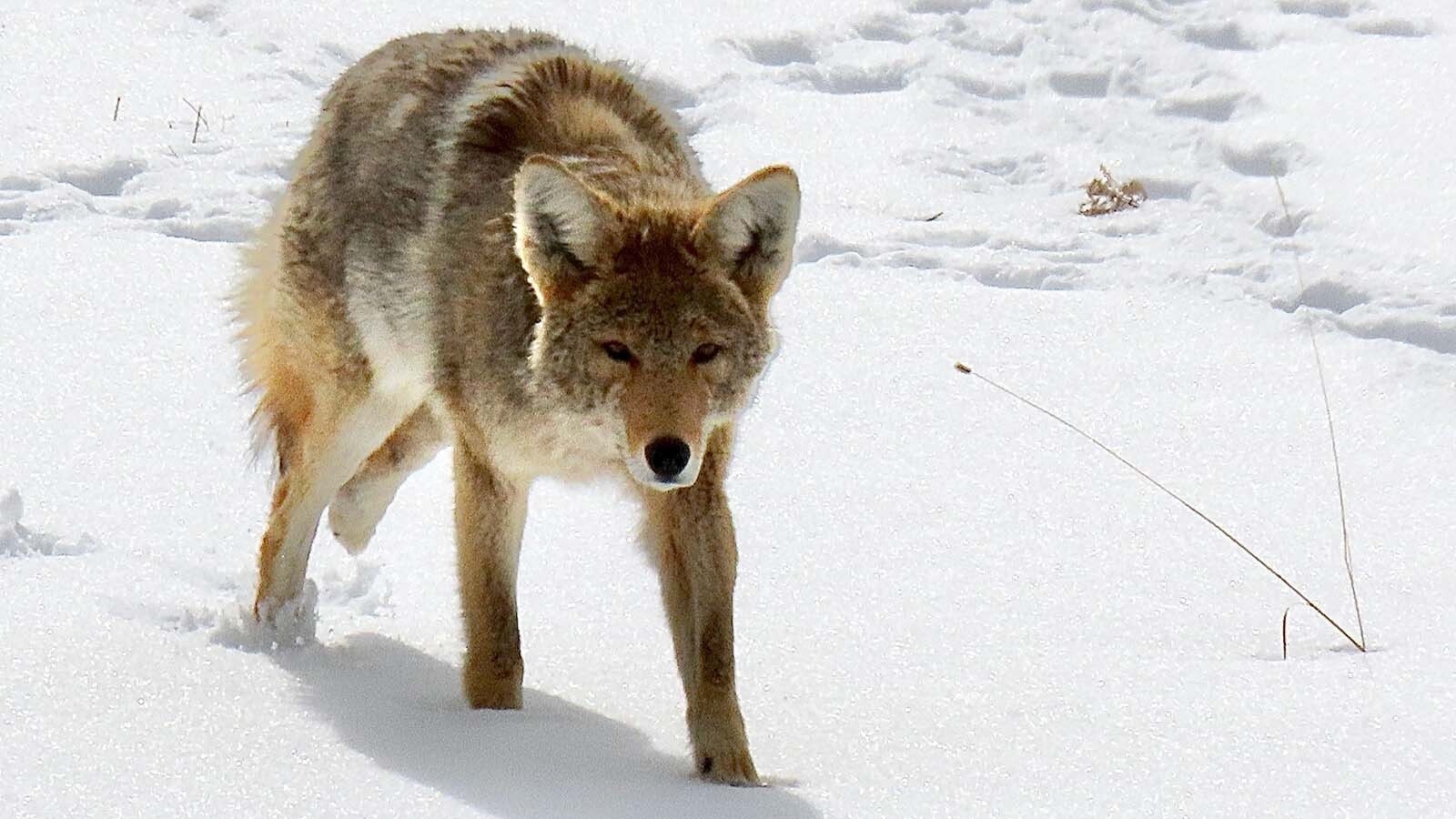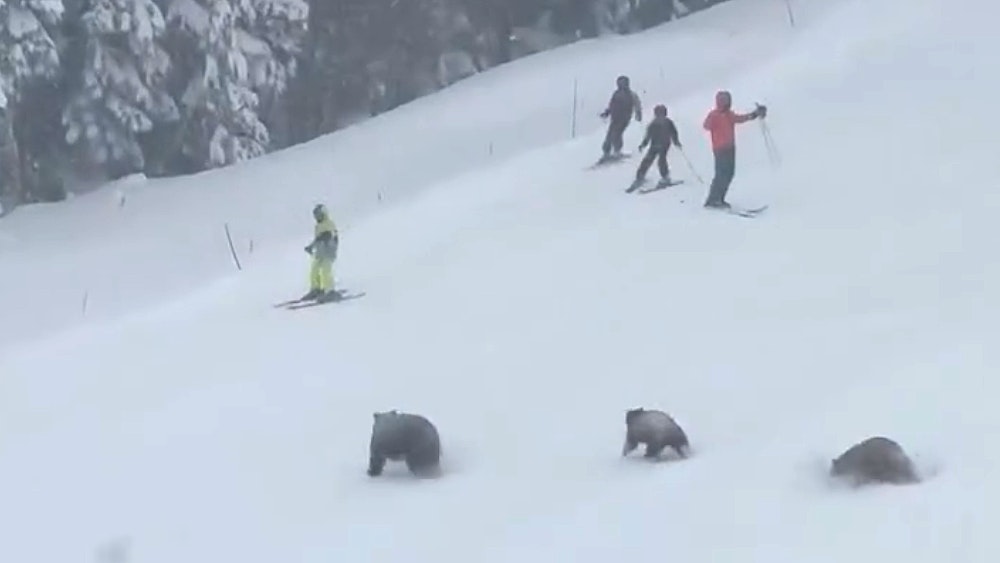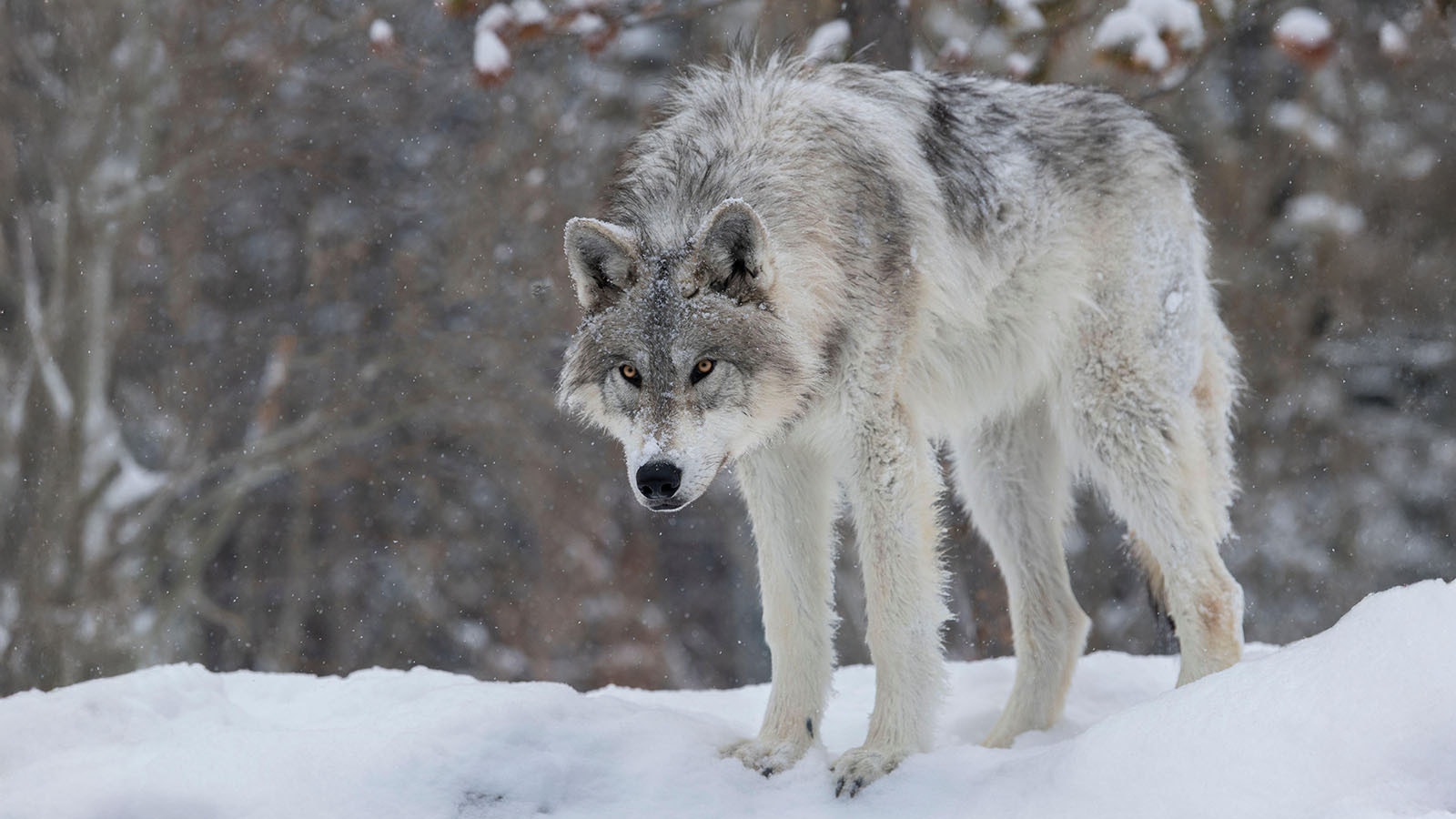Missouri needs a prisoner-rehabilitation program involving horse training, modeled after Wyoming’s Honor Farm and curly-haired mustangs from Wyoming would be perfect for it, a seasoned horse trainer said.
Curly-haired mustangs are intelligent, tough and extremely forgiving toward novice trainers, Candida Haasch, who runs the Warriors of the Rainbow Horse Sanctuary in Missouri, told Cowboy State Daily.
“They are uncannily smart,” said Haasch, who has kept and trained a few curly-haired mustangs over the years.
If rare curly-haired mustangs from Wyoming’s Salt Wells Creek herd are rounded up this summer, Haasch said she’d like to adopt as many as she can take.
Mustang advocates have filed a lawsuit to halt the round-up, and the case is pending before the federal 10th Circuit Court in Denver.
Regardless of how the case turns out, Haasch said that any Wyoming “curlies” that might need new homes will be welcome at her place.
“I can’t imagine my farm without curlies. I’ve had curlies since 1968,” she said.
Rough Start To Horse Training Career
Haasch said she knew nothing about horses as a child, but she was insistent about having one. So, her father obliged her when she was six years old and gave her a horse– that was likely captured mustang.
“He grabbed me by the elbow, threw me into the saddle and said, ‘There you go. There’s your pony,’ and then went inside to eat lunch. Needless to say, it didn’t go well,” she said.
Despite that rough start, her love of horses and horse training started that day, and has been a life-long pursuit.
Because of that first horse’s wild nature and her lack of experience, things didn’t work out, and her father sold that horse.
Haasch was determined to buy a horse of her own and spent the next six years saving money she earned by selling her grandmother’s tomatoes.

‘Inspector Sizemore’
By age 12, she had $176.12 saved up – enough to buy a low-end horse in those days.
She found one that nobody else wanted, a gelding named “Speck.”
As near as anybody could tell, he was a mustang, rounded up on the range in Oklahoma.
“He was a strange-looking horse,” she said. People called him “the scruffy-looking thing.”
But she thought the horse deserved a more flattering name than “Speck.” So she re-named him “Inspector Sizemore,” after a good friend of her father’s named Wesley Sizemore.
It wasn’t until later that she figured out that Inspector Sizemore was “strange” and “scruffy-looking” because he was actually of the rare curly-haired breed.
Inspector Sizemore turned out to be highly-trainable, agile and an exceptional jumper. He went on to win competitive agility and jumping championships.
He became the 430th officially-registered curly-haired horse in the United States, and Haasch kept him until his death at age 29, quite an advanced age for a horse.
Other horse advocates previously told Cowboy State Daily that the exact origins of curly-haired mustangs are unknown – and Haasch agreed.
“There was a theory for a while that they were related to a curly-coated breed from Russia” but that turned out to be false, she said.
“They seem to be a mixed lot. They are a whole bunch of breeds,” she added. “Nobody really knows, to this day, where they actually came from.”
Prisoner Rehabilitation
Haasch said she’s working with the Missouri Department of Corrections in hopes of launching a program modeled after the Wyoming Honor Farm and similar operations in other states.
The Honor Farm, near Riverton, pairs low-risk inmates with mustangs rounded up from the range by the Bureau of Land Management.
The inmates train the horses – and advocates say it’s an effective way to rehabilitate convicts.
Haasch said she agrees that horse training is an excellent way to set prisoners on the path toward successful reintegration back into society.
“When they train those horses, they lose their hearts to them,” she said.
“I don’t want my tax dollars going to have some guy sit there and watch T.V. while he’s planning how to shank his cellmate. I want my tax dollars going toward some guy learning how to tame a colt,” she added.
With their natural smarts and patience toward inexperienced horse trainers, Wyoming Curly-haired mustangs could be the missing piece that Missouri’s version of the Honor Farm needs, she said.
‘Not Enough Horse People’
Haasch credits horses for saving her life, or at least making it worth living.
Years ago, she was left paralyzed by a benign brain tumor.
The visceral drive to get back to horse training is what motivated her to get her body working again, she said.
Now, she wants to spread that inspiration by getting as many people as possible interested in horses.
She’s not opposed to the basic principle of the BLM mustang roundups in Wyoming and other Western states. But she hates the thought of those horses languishing in holding facilities, because so few people adopt them.
If more “middle class” realize that they can afford horses, and prisoner-rehabilitation horse training programs spread to other states, that would help immensely, Haasch said.
“We don’t have too many horses. We just have too few horse people,” she said.
Mark Heinz can be reached at mark@cowboystatedaily.com.








